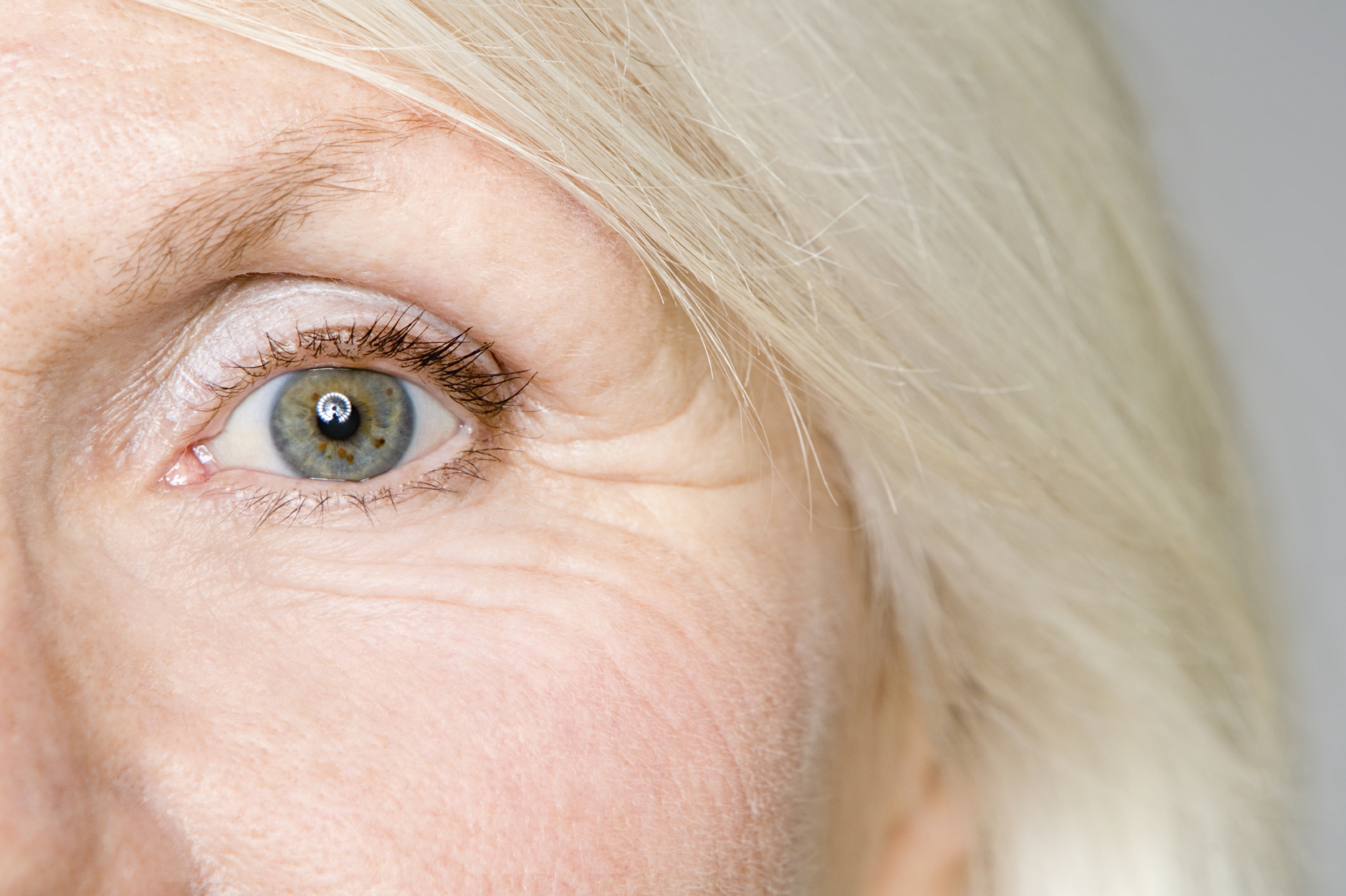Posted by: Associates in Ophthalmology (NJ) in Eye Health
Like most things that start to diminish with age, so do your eyes. After age 60, your vision can especially start to decline. If you find yourself holding the newspaper at arm’s length, you’re not alone. Your eyesight can change with age, however the best way to protect your eyes from aging is to take care of them while you’re young!

How eyes change with age:
- With age and over time, the size of the eye’s pupil gets smaller. The muscles that control pupil size and reaction to light lose their strength.
- Dry eyes are common with aging, especially in women over 40. It becomes harder to produce natural tears and lubrication. Artificial tears or eye drops can help to provide temporary relief.
- Loss of peripheral vision
- Decreased color vision
- Vitreous detachment can occur as the vitreous slowly begins to shrink with age and starts to pull away from the retina
Common eye problems associated with aging include:
- Presbyopia or the inability to see close objects like small print clearly. This can start around age 40 but can be corrected with reading glasses or prescription contacts lenses. Presbyopia is a result of the lens hardening inside the eye.
- Eye floaters or tiny spots that float across your field of vision, which are often normal and harmless. However, if they start occurring more frequently than normal you should see your eye care professional as soon as possible as it could be indicative of a retinal detachment.
- Dry eye becomes increasingly more common with age, especially for women.
- Macular degeneration, also known as age-related macular degeneration (AMD), is the leading cause of vision loss and blindness among Americans who are 65 and older. Macular degeneration is when the center part of the retina, known as the macula, begins to deteriorate. The macula is the part of the eye responsible for providing sharp vision.
- Cataracts occur when the eye’s lens begins to cloud, making it more difficult to see. This is a result of tiny proteins in the lens that begin to clump with age, blocking light and clouding vision.
- Glaucoma is an eye condition that causes damage to the eye’s optic nerve, which could eventually lead to vision loss if not treated. The risk of developing glaucoma continues to increase with every decade after age 40.
- Corneal diseases and conditions caused by infection or injury can lead to redness, water eyes, pain and other vision problems such as experience halos.
Tips on keeping your eyes healthy as you age:
- Know your family history since many eye conditions are hereditary. Your eye care professional will know to keep an eye out for early warning signs.
- Routine eye exams can detect eye problems. Early detection is critical to diagnosis and treatment.
- Eat foods beneficial for eye health including omega-3 fatty acids found in salmon, herring and trout that help to prevent dry eyes. Try to incorporate this into your diet at least twice a week. Omega-3 fatty acids can also be found in walnuts and flaxseed oil. In addition, carrots and sweet potatoes are also good for your eye health!
- Avoid smoking. Smokers increase their risk of getting cataracts and age-related macular degeneration.
- Exercise. Not only is daily exercise good for your health, but it’s good for your eyes too! Eyes require oxygen, which is stimulated through exercise.
With these tips you can help to combat the effects of aging eyes and maintain healthy vision and sight for a lifetime!
Associates in Ophthalmology
At Associates in Ophthalmology we take pride in offering our clients a wide range of vision correction procedures including LASIK and cataract surgery to ensure they get the best vision possible! Vision changes should not be ignored nor should you wait to experience age-related vision problems before you start preserving your eye health. The earlier you are diagnosed with an eye disease or condition, the earlier your eye care professional can provide you with treatment options. If you have any questions/concerns or would like to schedule an appointment, please contact our office directly at 862-245-6795 today!

